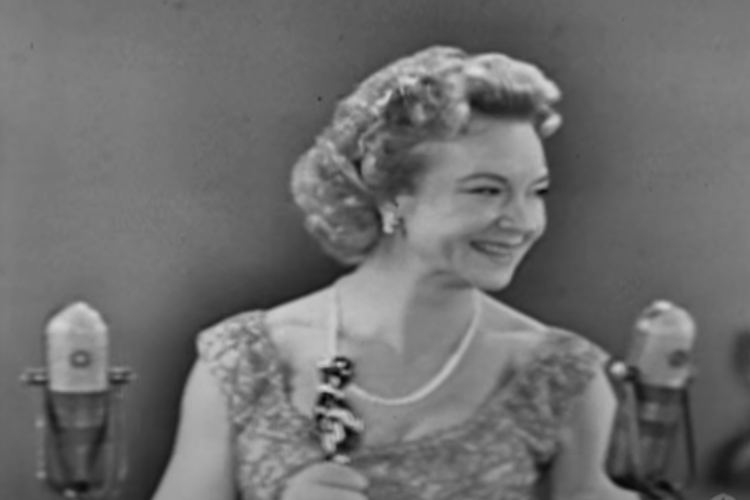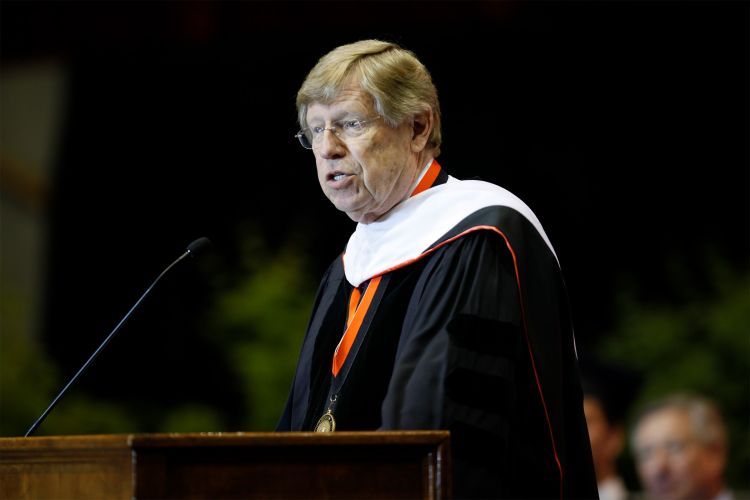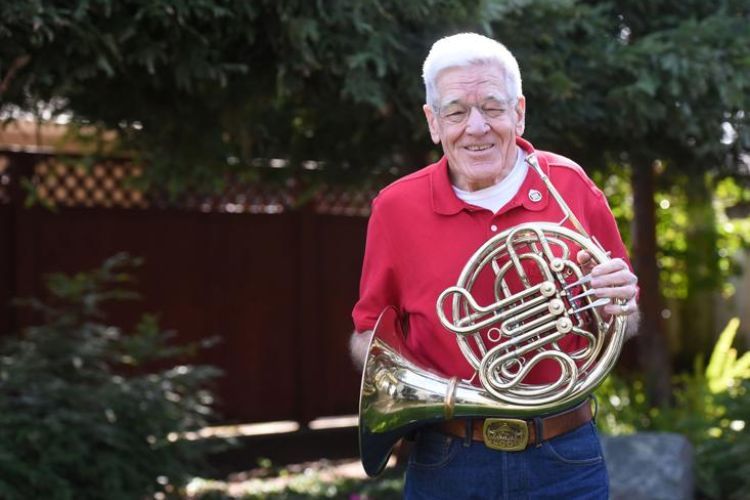Breadcrumb
Pacific’s largely forgotten Oscar winner made impact on screen

Jo Van Fleet won an Oscar for best supporting actress in 1956.
“And the winner is…Miss Jo Van Fleet in East of Eden.”
Hearing her name, the oft-forgotten actress—and College of the Pacific alumna—bounded out of her seat and ran toward the stage for her appointed ceremony with Oscar. Met by actor Edmond O’Brien, she gave him a peck on the cheek and accepted the statuette.
“I am so happy,” Van Fleet said.
Watch Jo Van Fleet’s Oscar acceptance speech
Van Fleet was named best supporting actress in 1956 for her role as the mother of actor James Dean’s character in “East of Eden,” a film adaptation of the classic novel of the same name by author John Steinbeck.
“East of Eden” was her first screen role.
She also was a respected stage actress and won a Tony Award for best featured actress for her role as Jessie Mae Watts in "Trip to Bountiful."
With the 96th Academy Awards scheduled for March 10, this is a look back at a successful, critically acclaimed but star-crossed actress whose cinematic roots developed at Pacific.
She caught the eye of drama professor
After graduating from University of California, Berkeley in 1936, Van Fleet ’41 studied in the drama program at Pacific and also received a teaching certificate. In 1959, she received a Distinguished Alumni Award.
Watching Van Fleet’s performances in student plays including “The Taming of the Shrew” and a comedy named “Oliver, Oliver” convinced DeMarcus Brown, the legendary decades-long director of Pacific’s drama program, that she was an actress “with great potential.”
Upon graduation from Pacific, she taught high school drama in San Joaquin County before Brown encouraged her to move to New York for the possibilities of Broadway and its vibrant drama scene.
Unfortunately, acting opportunities were not plentiful for Van Fleet and she had to work many odd jobs to keep her career dreams alive. That changed when legendary director Elia Kazan “discovered” her.
She had taken part in Kazan’s actor’s studio events and he thought she was perfect for the “East of Eden” role of Cathy Ames, the coarse mother of Dean’s character and the owner of a brothel.
In an interview years later, Van Fleet explained, “They decided I looked too young for the role, so the makeup department devised a new look and I got the role. It usually happens that way—whatever Kazan wants, he gets.”
The Oscar award and its aftermath
After the Oscar win Bob Thomas, a highly regarded Hollywood journalist for the Associated Press, wrote a story praising Van Fleet’s acting prowess and recalling how Pacific’s Brown impacted her life.
“At the time, New York seemed like another world to me, but he kept at me until he convinced me to go,” Van Fleet told Thomas.
The film roles started to come more frequently after Van Fleet won the Oscar, but she seemed to be typecast as an aging or harsh woman. After “East of Eden,” she played a mother in “I’ll Cry Tomorrow” followed by playing Kirk Douglas’ mistress in “Gunfight at OK Corral.”
In 1967, yet another role as a mother brought Van Fleet home to Stockton and Pacific.
She was cast as the mother of Paul Newman’s character in the classic film “Cool Hand Luke.” The movie was shot throughout the Stockton area and Van Fleet stayed with Brown during the filming.
Praised for her craft
Van Fleet expressed her disdain for being typecast and Brown said that probably cost her some roles.
“She was a very bright woman and incredibly talented and, sometimes, it became almost a hindrance to her,” Brown told The Stockton Record for a story on Van Fleet following her death in 1996 at age 80.
But her impact was widely felt; the New York Times’s obituary for her read in part: “Ms. Van Fleet was known as an actress's actress, a highly skilled professional who worked with equal ease onstage, in films and on television.
Jo Van Fleet filmography
Some of her more notable movies
- “East of Eden,” 1955
- “The Rose Tattoo,” 1955
- “I’ll Cry Tomorrow,” 1955
- “Gunfight at OK Corral,” 1957
- “Wild River,” 1960
- “Route 66,” 1963
- “Cool Hand Luke,” 1967
- “The Gang That Couldn’t Shoot Straight,” 1971





